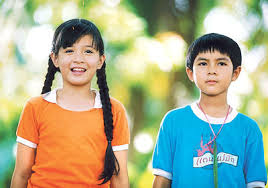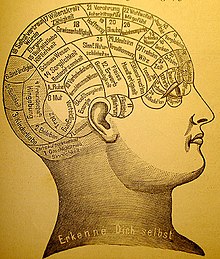Selasa, 21 September 2010
Industrial and organization psychology
Industrial and organizational psychology (also known as I-O psychology, industrial-organizational psychology, work psychology, organizational psychology, work and organizational psychology, industrial psychology, occupational psychology, personnel psychology or talent assessment) applies psychology to organizations and workplaces. These organizations and workplaces include for-profit businesses, non-profits, government agencies, and colleges and universities. Industrial-organizational psychologists contribute to an organization's success by improving the performance and well-being of its people. An I-O psychologist researches and identifies how behaviors and attitudes can be improved through hiring practices, training programs, and feedback systems.
Minggu, 19 September 2010
Developmental psychology
Developmental psychology, also known as human development, is the scientific study of systematic psychological changes that occur in human beings over the course of their life span. Originally concerned with infants and children, the field has expanded to include adolescence, adult development, aging, and the entire life span. This field examines change across a broad range of topics including motor skills and other psycho-physiological processes; cognitive development involving areas such asproblem solving, moral understanding, and conceptual understanding; language acquisition; social, personality, and emotional development; and self-concept and identity formation.
Developmental psychology includes issues such as the extent to which development occurs through the gradual accumulation of knowledge versus stage-like development, or the extent to which children are born with innate mental structures versus learning through experience.
Developmental psychology informs several applied fields, including: educational psychology, child psychopathology, and forensic developmental psychology. Developmental psychology complements several other basic research fields in psychology including social psychology, cognitive psychology, ecological psychology, andcomparative psychology.
From birth until the onset of speech, the child is referred to as an infant. Developmental psychologists vary widely in their assessment of infant psychology, and the influence the outside world has upon it, but certain aspects are relatively clear. here are critical periods in infancy and childhood during which development of certain perceptual, sensorimotor, social and language systems depends crucially on environmental stimulation.
 When children attend preschool, they broaden their social horizons and become more engaged with those around them. Impulses are channeled into fantasies, which leaves the task of the caretaker to balance eagerness for pursuing adventure, creativity and self expression with the development of responsibility. If caretakers are properly encouraging and consistently disciplinary, children are more likely to develop positive self-esteem while becoming more responsible, and will follow through on assigned activities. If not allowed to decide which activities to perform, children may begin to feel guilt upon contemplating taking initiative. This negative association with independence will lead them to let others make decisions in place of them.
When children attend preschool, they broaden their social horizons and become more engaged with those around them. Impulses are channeled into fantasies, which leaves the task of the caretaker to balance eagerness for pursuing adventure, creativity and self expression with the development of responsibility. If caretakers are properly encouraging and consistently disciplinary, children are more likely to develop positive self-esteem while becoming more responsible, and will follow through on assigned activities. If not allowed to decide which activities to perform, children may begin to feel guilt upon contemplating taking initiative. This negative association with independence will lead them to let others make decisions in place of them.
 In middle childhood, intelligence is demonstrated through logical and systematic manipulation of symbols related to concrete objects. Operational thinking develops, which means actions are reversible, and egocentric thought diminishes.
In middle childhood, intelligence is demonstrated through logical and systematic manipulation of symbols related to concrete objects. Operational thinking develops, which means actions are reversible, and egocentric thought diminishes.
 Adolescence is the period of life between the onset of puberty and the full commitment to an adult social role, such as worker, parent, and/or citizen. It is the period known for the formation of personal and social identity (see Erik Erikson) and the discovery of moral purpose (see William Damon). Intelligence is demonstrated through the logical use of symbols related to abstract concepts and formal reasoning. A return to egocentric thought often occurs early in the period. Only 35% develop the capacity to reason formally during adolescence or adulthood. (Huitt, W. and Hummel, J. January 1998)
Adolescence is the period of life between the onset of puberty and the full commitment to an adult social role, such as worker, parent, and/or citizen. It is the period known for the formation of personal and social identity (see Erik Erikson) and the discovery of moral purpose (see William Damon). Intelligence is demonstrated through the logical use of symbols related to abstract concepts and formal reasoning. A return to egocentric thought often occurs early in the period. Only 35% develop the capacity to reason formally during adolescence or adulthood. (Huitt, W. and Hummel, J. January 1998)
 The person must learn how to form intimate relationships, both in friendship and love. The development of this skill relies on the resolution of other stages. It may be hard to establish intimacy if one has not developed trust or a sense of identity. If this skill is not learned the alternative is alienation, isolation, a fear of commitment, and the inability to depend on others.
The person must learn how to form intimate relationships, both in friendship and love. The development of this skill relies on the resolution of other stages. It may be hard to establish intimacy if one has not developed trust or a sense of identity. If this skill is not learned the alternative is alienation, isolation, a fear of commitment, and the inability to depend on others.
 Physically, the middle-aged experience a decline in muscular strength, reaction time, sensory keenness, and cardiac output. Also, women experience menopause and a sharp drop in the hormoneestrogen. Men do have an equivalent to menopause, it is called "Andropause," which is a hormone fluctuation with physical and psychological effects similar to menopause. Lowered testosterone levels result in mood swings and a decline in sperm count and speed of ejaculation and erection. Most men and women remain capable of sexual satisfaction after middle age.
Physically, the middle-aged experience a decline in muscular strength, reaction time, sensory keenness, and cardiac output. Also, women experience menopause and a sharp drop in the hormoneestrogen. Men do have an equivalent to menopause, it is called "Andropause," which is a hormone fluctuation with physical and psychological effects similar to menopause. Lowered testosterone levels result in mood swings and a decline in sperm count and speed of ejaculation and erection. Most men and women remain capable of sexual satisfaction after middle age.
 This stage generally refers to those over 60–80 years. During old age, people experience a conflict between integrity vs. despair. When reflecting on their life, they either feel a sense of accomplishment or failure.
This stage generally refers to those over 60–80 years. During old age, people experience a conflict between integrity vs. despair. When reflecting on their life, they either feel a sense of accomplishment or failure.
From birth until the onset of speech, the child is referred to as an infant. Developmental psychologists vary widely in their assessment of infant psychology, and the influence the outside world has upon it, but certain aspects are relatively clear. here are critical periods in infancy and childhood during which development of certain perceptual, sensorimotor, social and language systems depends crucially on environmental stimulation.
Babyhood
Intelligence is demonstrated through the use of symbols, language use matures, and memory and imagination are developed. Thinking is done in a nonlogical, nonreversible manner. Egocentric thinking predominates.
Socially, toddlers are little people attempting to become independent at this stage, which they are commonly called the " terrible twos". They walk, talk, use the toilet, and get food for themselves. Self-control begins to develop. If taking the initiative to explore, experiment, risk mistakes in trying new things, and test their limits is encouraged by the caretaker(s) the child will become autonomous, self-reliant, and confident. If the caretaker is overprotective or disapproving of independent actions, the toddler may begin to doubt their abilities and feel ashamed for the desire for independence. The child's autonomic development will be inhibited, and be less prepared to successfully deal with the world in the future.
Early childhood
Also called as "Pre-school age", "Exploratory age" and "Toy age".
Late Childhood
Children go through the transition from the world at home to that of school and peers. Children learn to make things, use tools, and acquire the skills to be a worker and a potential provider. Children can now receive feedback from outsiders about their accomplishments. If children can discover pleasure in intellectual stimulation, being productive, seeking success, they will develop a sense of competence. If they are not successful or cannot discover pleasure in the process, they may develop a sense of inferiority and feelings of inadequacy that may haunt them throughout life. This is when children think of them selves as industrious or as inferior.
Adolescence
It is divided into two parts namely:
1. Early Adolescence: 13 to 17 years and
2. Late Adolescence: 17 to 18 years
The adolescent unconsciously explores questions such as "Who am I? Who do I want to be?" Like toddlers, adolescents must explore, test limits, become autonomous, and commit to an identity, orsense of self. Different roles, behaviors and ideologies must be tried out to select an identity. Role confusion and inability to choose vocation can result from a failure to achieve a sense of identity.
Early adulthood
A related framework for studying this part of the life span is that of Emerging adulthood, introduced in 2000 by Jeffrey Arnett. Scholars of emerging adulthood are interested not only in relationship development (focusing on the role of dating in helping individuals settle on a long-term spouse/partner), but also the development of sociopolitical views and occupational choice.
Middle age
Middle adulthood generally refers to the period between ages 40 to 60. During this period, the middle-aged experience a conflict between generativity and stagnation. They may either feel a sense of contributing to the next generation and their community or a sense of purposelessness.
Old age
Physically, older people experience a decline in muscular strength, reaction time, stamina, hearing, distance perception, and the sense of smell. They also are more susceptible to severe diseases such as cancer and pneumonia due to a weakened immune system. Mental disintegration may also occur, leading to Dementia or Alzheimer's Disease. However, partially due to a lifetime's accumulation of antibodies, the elderly are less likely to suffer from common diseases such as the cold.
Whether or not intellectual powers increase or decrease with age remains controversial. Longitudinal studies have suggested that intellect declines, while cross-sectional studies suggest that intellect is stable. It is generally believed that crystallized intelligence increases up to old age, while fluid intelligence decreases with age.
Clinical psychology
Clinical psychology is an integration of science, theory and clinical knowledge for the purpose of understanding, preventing, and relieving psychologically based distress or dysfunction and to promote subjective well-being and personal development Central to its practice are psychological assessment and psychotherapy, although clinical psychologists also engage in research, teaching, consultation, forensic testimony, and program development and administration. In many countries, clinical psychology is a regulated mental health profession.
The field is often considered to have begun in 1896 with the opening of the first psychological clinic at the University of Pennsylvania by Lightner Witmer. In the first half of the 20th century, clinical psychology was focused on psychological assessment, with little attention given to treatment. This changed after the 1940s when World War II resulted in the need for a large increase in the number of trained clinicians. Since that time, two main educational models have developed—the Ph.D. science-practitioner model (focusing on research) and the Psy.D. practitioner-scholar model (focusing on clinical practice). Clinical psychologists are now considered experts in providing psychotherapy, and generally train within four primary theoretical orientations—psychodynamic, humanistic, behavior therapy/ cognitive behavioral, and systems or family therapy.
Sabtu, 04 September 2010
Brief History of Psychology
Psychology is the scientific study of human or animal mental functions and behaviors, often making use of the scientific method in laboratory research .
Basic research in psychology includes perception, cognition, attention, emotion, motivation, brain functioning, personality, behavior, and interpersonal relationships.
German physician Wilhelm Wundt is known as the "father of experimental psychology," because he founded the first psychological laboratory, at Leipzig University in 1879.Wundt focused on breaking down mental processes into the most basic components, starting a school of psychology that is called structuralism. Edward Titchener was another major structuralist thinker.
Starting in the 1950s, the experimental techniques set forth by Wundt, James, Ebbinghaus, and others would be reiterated as experimental psychology became increasingly cognitive—concerned with information and its processing—and, eventually, constituted a part of the wider cognitive science.
Basic research in psychology includes perception, cognition, attention, emotion, motivation, brain functioning, personality, behavior, and interpersonal relationships.
German physician Wilhelm Wundt is known as the "father of experimental psychology," because he founded the first psychological laboratory, at Leipzig University in 1879.Wundt focused on breaking down mental processes into the most basic components, starting a school of psychology that is called structuralism. Edward Titchener was another major structuralist thinker.
Starting in the 1950s, the experimental techniques set forth by Wundt, James, Ebbinghaus, and others would be reiterated as experimental psychology became increasingly cognitive—concerned with information and its processing—and, eventually, constituted a part of the wider cognitive science.
dreams
do not ever dare to dream if fear of falling, if you dare to dream that dream especially high.they should be prepared with whatever the outcome later
Jumat, 03 September 2010
Langganan:
Postingan (Atom)


